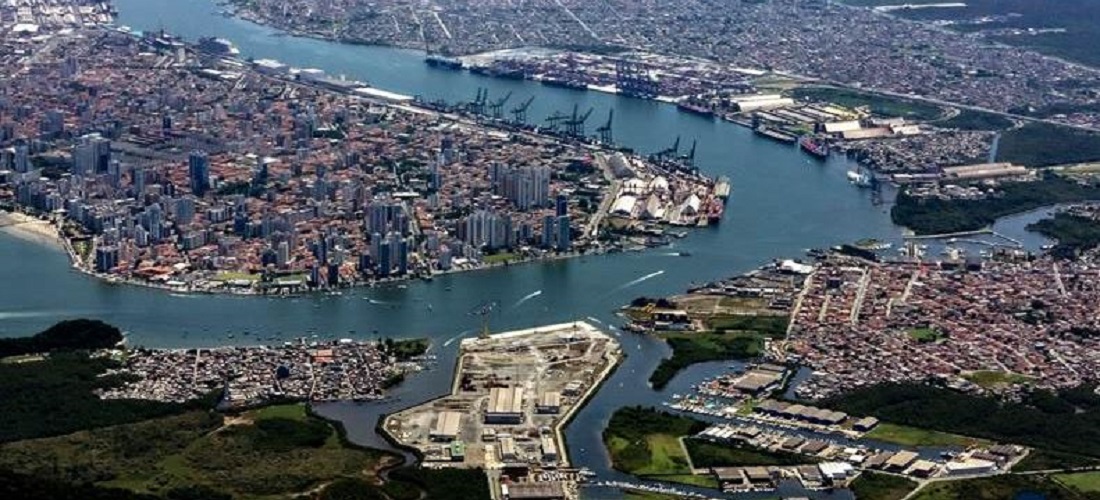
Brazilian gov’t to regulate new legal framework on Export Processing Zones
Aug, 14, 2023 Posted by Gabriel MalheirosWeek 202333
The creation of an Export Processing Zone (EPZ) around the metropolitan region of Santos has drawn the attention of the Ministry of Development, Industry, Commerce, and Services. The government agency has established a task force to regulate the normative structure for the EPZs, based on Federal Law 14,184 of 2021, which modernized the establishment of export-oriented zones.
The task force consisting of representatives from ten different groups will convene for a six-month period, which can be extended for the same duration. They aim to review four Export Processing Zones (EPZs) regulations. These regulations cover topics such as tariffs, exchange rates, and administrative frameworks of EPZs; the internal guidelines of the National Council of EPZs; the rules and policies that apply to EPZs, including their promoters, administrators, and authorized companies within these zones; and the guidance for conducting the necessary regulatory impact analysis.
Currently, Brazil has 11 authorized EPZs, with two already operational in Pecém and Parnaíba. Furthermore, Aracruz in Espírito Santo is set to become the nation’s first private EPZ, potentially expanding to a vast 5 million square meters. The resolution establishing the Capixaba EPZ was signed on July 27th.
Near-Term Prospects
Within the Santos region, Bruno Orlandi, Santos’ Secretary for Port Affairs and Employment, stated in the August 2nd edition of the daily “A Tribuna” that imminent developments regarding the City’s Export Processing Zone are expected. The city’s Continental Area has already been zoned to align with the implementation of EPZs, whether initiated privately or publicly.
“The new legal framework for EPZs allows structures in various areas, as long as they remain within 30 km of each other. This is beneficial for other cities in the region. It goes hand-in-hand with regional, state, and national interests. It’s crucial to highlight that the Port of Santos and its surrounding cities have the potential to secure their roles within the strategic reindustrialization of the state,” he noted.
Orlandi further emphasized that industries located within the Continental Area would be set in proximity to the Port of Santos, thereby aiding in lowering logistical costs and transforming Santos into an employment powerhouse. “There is room for everyone, and Mayor Rogério Santos’s orientation is for us to work on this issue collaboratively, always with sustainable development and quality of life as guiding principles.”
Operational Dynamism
Rodrigo Paiva, an infrastructure specialist and port consultant, highlights that some changes to the new Legal Framework will usher in the establishment and operation of EPZs, aiming to streamline these initiatives. First and foremost, eliminating the export commitment requirement enables companies to allocate a portion of their production to the domestic market, provided they adhere to taxation.
“This alteration will empower industries and service providers linked to the export chain to continue capitalizing on a distinct tax regime, boosting exports, while concurrently directing a segment of their production towards the domestic market,” he explains.
As the consultant recalls, the export commitment stipulated by previous legislation deterred the success of numerous EPZ projects, as it lacked appeal for entrepreneurs.
“Another critical factor that must persist in this stage is the feasibility of establishing EPZs in discontinuous areas. Given that many of these developments are linked to the port ecosystem, it’s natural for them to be constructed on lands adjacent to port zones, which can be congested, previously impeding their establishment.”
Paiva believes that the increased flexibility provided by the Legal Framework will foster greater involvement from stakeholders and enterprises, harmonizing domestic and export markets “without creating an imbalance in competition with companies situated outside these zones.”
Research and Integration
Luis Claudio Santana Montenegro, a port consultant, civil engineer, and Master in Transport Engineering, echoes the sentiments expressed by Paiva, sharing positive expectations.
“This policy is critical for the country because it positions Brazil more effectively in international trade. It is a partnership model that integrates Brazilian industries into global value chains, a practice being replicated worldwide. While some resolutions have been unified, progress has not been made in all areas. There is still excessive bureaucracy that needs to be addressed. Certain aspects must be revisited. We’re willing to wait, but I’m confident that a legal framework will be established, resulting in favorable outcomes.”
Montenegro emphasizes the importance of EPZs receiving research incentives and the government actively supporting these initiatives. Such efforts would aid in forming collaborations between domestic industries and foreign counterparts. “These pathways allow Brazilian industries to seamlessly integrate into global supply chains, thereby expanding the scope of domestic production.” As exports grow, so does domestic production.”
Source: A Tribuna
To read the original news report, see: https://www.atribuna.com.br/noticias/portomar/governo-federal-vai-regulamentar-marco-legal-das-zonas-de-processamento-de-exportacao
-
Ports and Terminals
Dec, 20, 2023
0
Port of Itajaí expects container operations to resume in 90 days, says new leaseholder
-
Ports and Terminals
Jul, 21, 2023
0
Uruguay, Paraguay sign agreement to boost cooperation among customs inspections
-
DW 2019 EN
Oct, 21, 2019
0
DATAMARWEEK 22 OCTOBER 2019
-
Shipping
May, 20, 2022
0
Argentina extended the Paraná River Basin’s water emergency warning for six months

